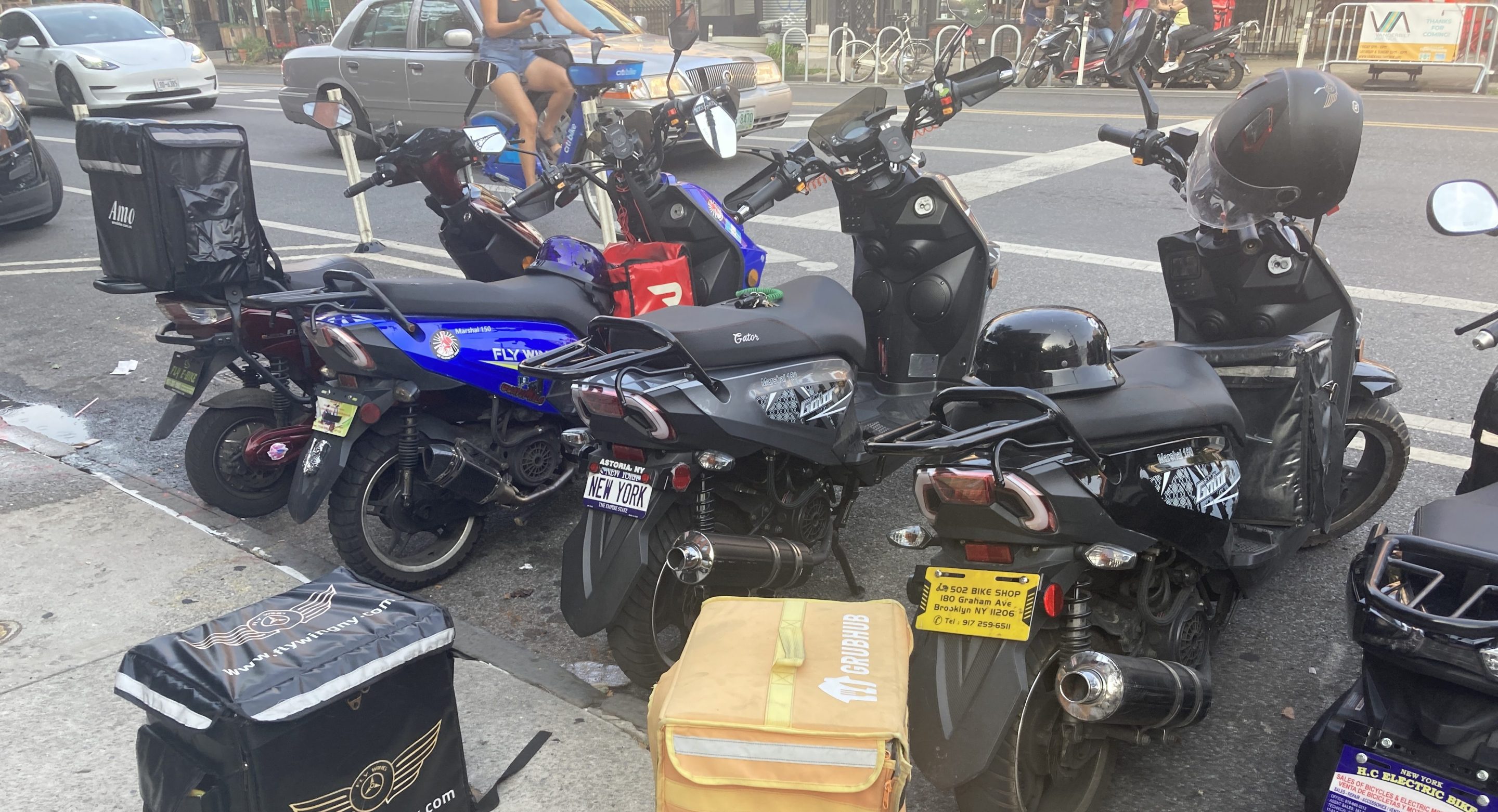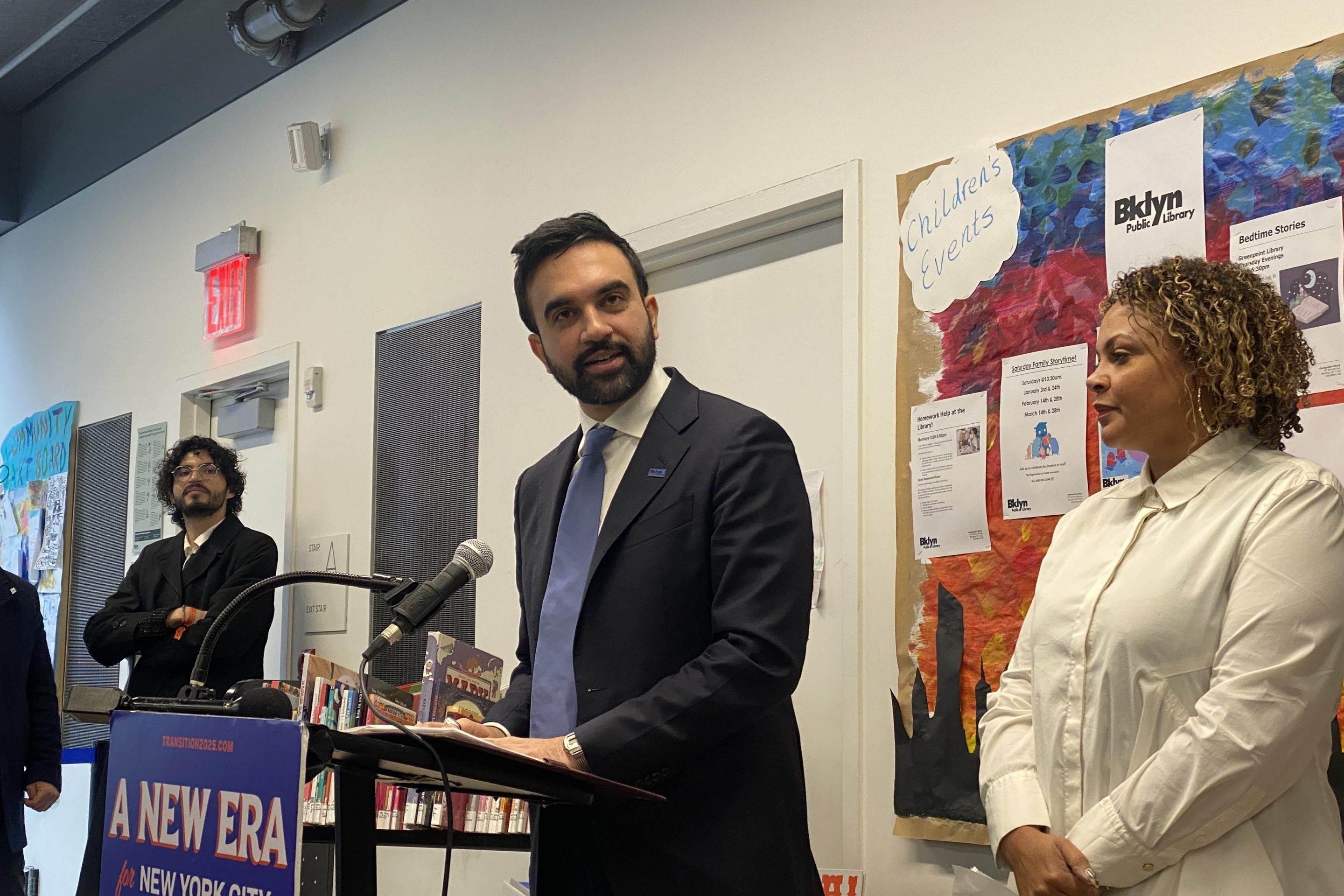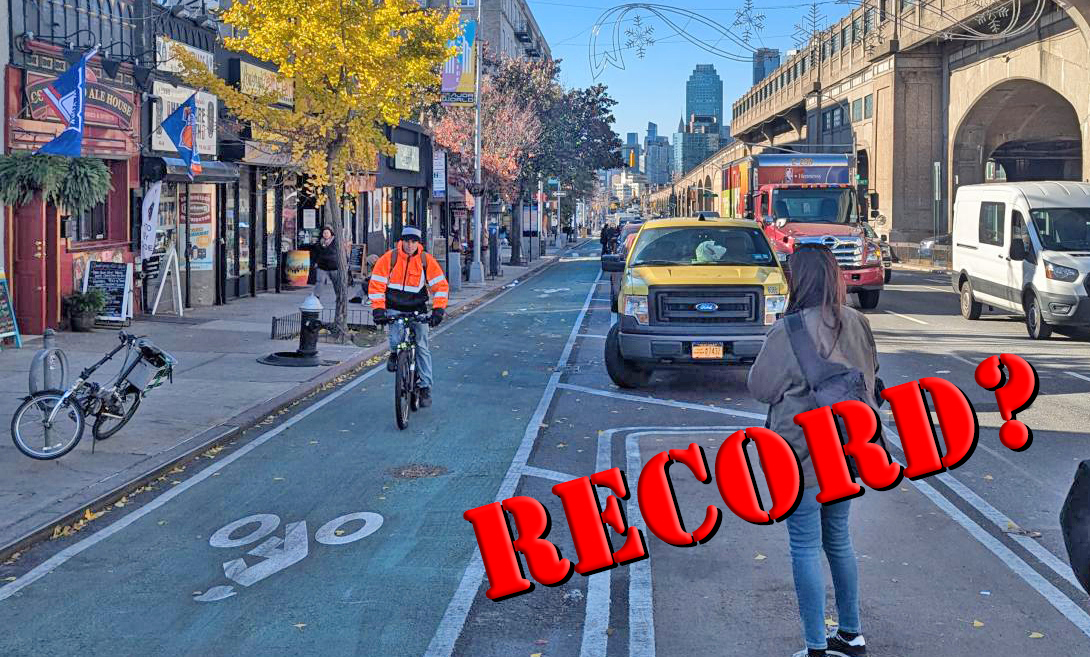It's an assault on batteries.
The city says it will send out inspectors this weekend to begin enforcement of a new law prohibiting the sale of uncertified lithium-ion power cells, which the fire department says have sparked dozens of fires so far this year.
Enforcement is slated to begin on Saturday because that's when Local Law 39 goes into effect. The city says its inspectors will not only be looking for now-illegal batteries, but also illegal mopeds.
“While inspecting retailers for compliance with LL39, we will also check for illegal motorized scooters [mopeds], issue summonses and refer issues to NYPD and FDNY as appropriate," said Department of Consumer and Worker Protection spokesperson Michael Lanza.
As Streetsblog reported earlier this summer, the ramped-up enforcement against e-bikes and the batteries that power them in the wake of deadly infernos has forced many delivery workers to turn to gas-powered vehicles, unleashing a proliferation of illegal mopeds. Heavier and faster than traditional e-bikes, gas-powered mopeds are legal, but only with a license plate issued by the Department of Motor Vehicles. But tens of thousands have been sold — some that can't be registered because they don't have the required vehicle identification number, and many that can be registered, but whose owners have chosen not to do so.
It has been difficult to crack down on the point-of-sale of illegal mopeds because according to the DMV, the buyer, not the seller, is responsible for registering the vehicle and getting a license plate for it.
The DMV can impose civil penalties against unregistered dealers — but a vast portion of moped dealers are in fact unregistered because their merchandise itself is illegal — and the agency said it "works with" law enforcement to conduct investigations against unregistered dealers of both cars and mopeds, Streetsblog reported last month.
DCWP said it does not have the authority to confiscate illegal mopeds, but can issue summonses and call in the NYPD, the spokesperson said. The NYPD, however, has not been systematic in its enforcement, Streetsblog has previously reported.
The start of DCWP battery enforcement will come two days after the City Council passed Manhattan Council Member Keith Power’s bill to create a citywide "buy back" program that would allow delivery workers to exchange faulty lithium-ion batteries for safe, certified ones, and introduced a slate of other reforms to help regulate the dangerous industry.
None of the bills introduced on Thursday addresses the “point of sale” of illegal mopeds, but Powers said he and his fellow pols recognize the necessity of getting the unlicensed mopeds off the street and stopping them before they’re even sold.
“It is something we’ve been looking at, and I've actually talked to the administration a bit. We recognize that problem. We've been talking to the deputy mayor's office about further measures ahead,” said Powers.






